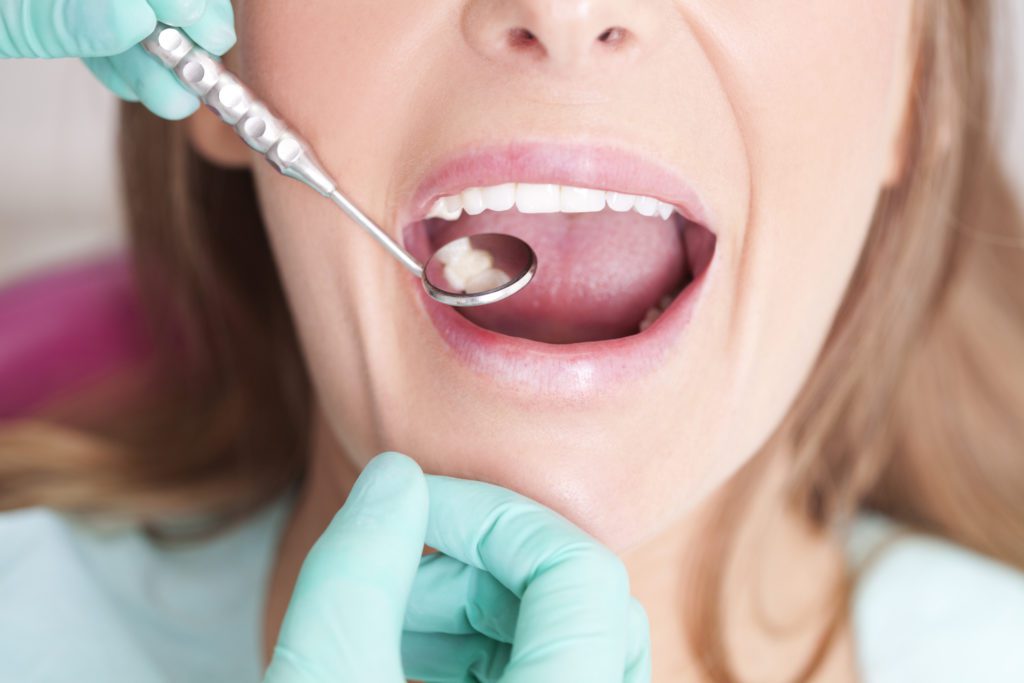Gingivitis, or gum inflammation, is an early stage of gum disease. Also known as periodontitis, gum disease is a highly damaging dental problem that not only affects the gums but the whole smile. Dr. Jeffrey Bellisario and Dr. David Robbins offer periodontal disease treatment to patients in Ardmore, PA.
With their dental team, they help restore the teeth and gums affected by gum disease with deep cleanings and antibacterial treatments. These treatments remove harmful bacteria that build up and beneath the gums. Over time, gum inflammation can impact the health of the heart as the infection enters the bloodstream. Early intervention is the key to reversing the effects of gum disease.

Stages of Periodontal Disease
Periodontal disease is a progressive infection of the gums that affects millions of individuals worldwide. It can cause serious and permanent damage. There are four main stages that, if left untreated, can progress very quickly. Continue reading to learn more about each stage of gum disease, and what can be done to treat them.
Gingivitis
The first stage of gum disease is medically known as gingivitis. This is the earliest and least severe stage of the disease. It begins with plaque and bacteria forming around the gums that hardens and causes them to become red and inflamed. The most common symptom of gingivitis is bleeding gums and chronic bad breath. Gingivitis can be reversed by brushing and flossing regularly.
Early Periodontitis
When left untreated gingivitis may progress to the second stage of periodontitis, known as early periodontitis. During this stage gums begin to recede and form pockets that house bacteria. Gums remain inflammed and red. Dental scaling and root planing is the most common way we treat this stage of the disease. This is a deep cleaning that we use to remove plaque and bacteria from the gums.
Moderate Periodontitis
The third stage of gum disease is known as moderate periodontitis. Once patients have reached this stage of the disease gum tissue and the jawbone may begin to deteriorate. At this point damage is irreversible, however treatment can prevent the progression of the disease. Gum grafting may be used to replace gum tissue, and promote gum regeneration.
Advanced Periodonntitis
The last and most severe stage of periodontitis is advanced periodontitis. There is a potential for tooth loss and a significant amount of jawbone has been lost once patients reach this stage. Bone grafting, gum grafting, and flap surgery are also options for treatment. Seeking treatment as soon as possible is crucial to prevent tooth loss.
Common Symptoms of Gum Disease
There are many signs of gum disease. It is important to know and recognize signs and symptom of gum disease so that you are able to seek treatment as soon as symptoms arise. Signs of gum inflammation and disease often include:
- Bleeding gums when brushing and flossing
- Red and purple-tinged gums
- Bad breath (Halitosis)
- Pus between the teeth and gums
- Sensitive and inflamed gums
- Swollen and tender gums
- Gum recession
Please contact our dental office if you notice changes in your gum health. Our dentists will find the right solution to stop your symptoms. It is very important to seek treatmnet as soon as possible to prevent gum disease from progressing and causing irreverisble damage.
How to Prevent and Treat Gum Disease
There are several ways patients can stop the development of gum disease. Continue reading to learn more about treatment options that can prevent gum disease, both at home and in our office.
- At-Home Dental Care: Brushing and flossing twice a day helps minimize bacteria buildup on the teeth and gums. Flossing before brushing helps remove food debris from between the teeth for a better clean. A consistent oral hygiene routine is often the best defense against gum disease.
- Antibacterial Rinses: We typically use antibacterial rinses at regular dental visits. These rinses prevent microbe growth that causes gum disease.
- Laser Dentistry: We provide soft tissue laser treatment to remove infected gum tissue. Dental lasers can also be used to graft healthy tissue from another part of the mouth to cover receding gums.
- Routine In-Office Dental Cleanings: Our dental hygienists offer deep cleaning services to remove plaque and tartar from the gums. They use specialized dental tools to remove hard calculus deposits. These deposits can form in areas of the smile that can be difficult to reach. Because of this, we recommend that patients visit our office twice a year for preventative cleaning.
Call Our Dental Office
Do you think that you could be at risk of developing gum disease? Contact the Office of Dr. Bellisario today at (610) 839-8967. Feel free to request a dental appointment with our dentists on our website.
